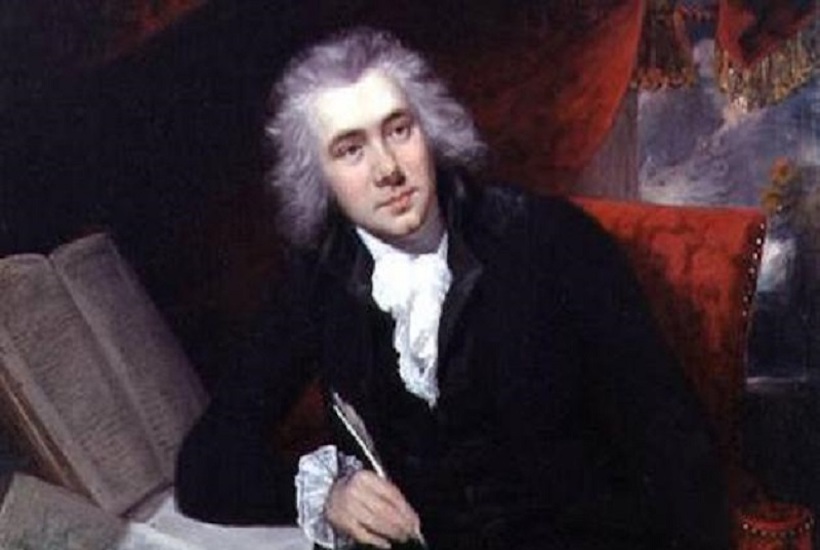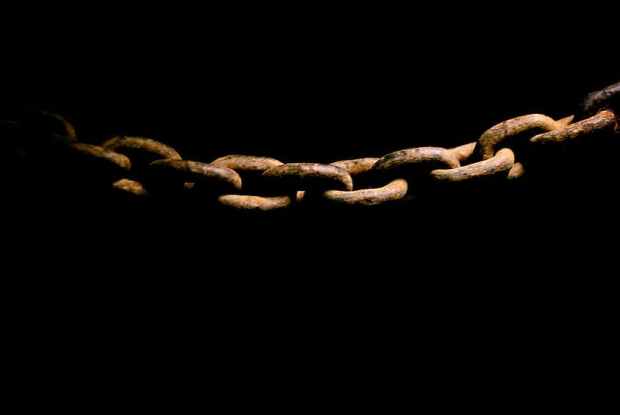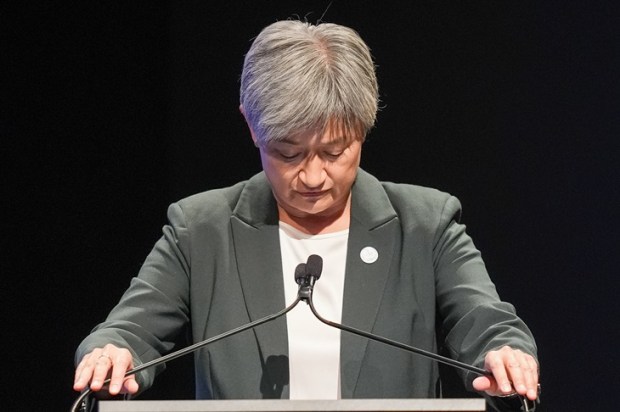On the meandering banks of Sydney’s Hawkesbury River, there lies a small, historic town featuring a sandstone church, a cemetery and a pioneer village. The “Macquarie Town” of Wilberforce is but one memorial to the great anti-slavery crusader and social reformer, William Wilberforce. As we mark yet another Australia Day, it is worthwhile to just explore the profound imprint his combination of Evangelical Christianity and humane liberalism left on the formation of modern Australia.
While best remembered for his tireless parliamentary campaign to end the gruesome slave trade with the Slavery Abolition Act of 1833, the Yorkshire-born statesman took an abiding interest in the settlement of Australia. According to the Australian historian, Dr Stuart Piggin, Wilberforce viewed the southern continent as a frontier to spread the Christian gospel and further social reform. As the leader of the Clapham Circle, a London-based network of influential Evangelicals in the Church of England, Wilberforce was instrumental in William Pitt’s appointment of the Rev Richard Johnson as chaplain to the First Fleet. Johnson was soon joined by the Rev Samuel Marsden, whose education at Cambridge had been supported by Wilberforce.
Transplanting the Evangelical Anglicanism of Wilberforce and the Clapham Circle to Australian soil, Johnson and Marsden helped lay the foundations for one of Australia’s most vibrant and enduring religious movements. As the largest and most influential Anglican diocese in the country, Sydney would flourish as both a bastion of Protestant orthodoxy and a powerhouse for Christian mission and evangelism. Together with Australia’s other faith traditions, Sydney Anglicanism has made a tremendous contribution to social welfare, education and the common good. Even after two centuries, its spiritual vitality remains indebted to the robust Evangelical faith of Wilberforce and his recommended appointees to the colony of NSW
As well as his impact on Australian church life, Wilberforce proved influential in sowing the seeds of Australian liberalism. In conjunction with the free market economics of Adam Smith and the utilitarianism of Jeremy Bentham, the humanitarianism of Wilberforce contributed to the character of colonial Australian liberalism. While Wilberforce’s liberal credentials were less than perfect, with his opposition to free religious debate and the rights of trade unions, his Evangelicalism nonetheless helped craft a liberalism that renounced slavery, affirmed the dignity of all people and dared to dream of improvement.
The first champion of this liberalism was none other than Captain Arthur Philip, the English Whig appointed as the inaugural Governor of NSW. A humane and enlightened man for his age, Phillip imbibed Wilberforce’s humanitarian views that entailed the repudiation of slavery, the humane treatment of the indigenous population and the affirmation of a common humanity for all races. Although he did not ascent to Wilberforce’s Evangelical Christianity, Phillip agreed that religion provided the moral basis for a civil society.
Arguably, the most direct influence Wilberforce had on the formation of Australian liberalism was through his disciple, Edward Smith Hall, the philanthropist, newspaper editor and political reformer. Arriving in NSW in 1811, Hall emerged as a persuasive advocate for liberal values including representative government, the rule of law, trial by jury, freedom of the press and political civility. The liberal torch of Wilberforce’s protégé eventually passed on to the leading light of late colonial liberalism, Sir Henry Parkes, whose paper The Empire had been originally associated with Hall.
Wilberforce and his Clapham circle also contributed to the growth of Australian liberalism through close family ties. Wilberforce’s brother-in-law, James Stephen, who was an anti-slavery campaigner in his own right, had a brother John who came to Australia and became a judge of NSW Supreme Court in 1825. In that capacity, he became a strong proponent of establishing the liberal values and institutions that aided the transition of colonial NSW from a military autocracy to a representative democracy. Accordingly, the development of humanitarian liberalism in Australia was heavily promoted by people connected with the Clapham circle of Wilberforce.
The most consequential Governor of colonial NSW, Lachlan Macquarie, was also not untouched by the British anti-slavery campaigner. Wilberforce saw in Macquarie the potential to restore some modicum of order to a settlement that had atrophied under previous administrations. At the commencement of Macquarie’s term as Governor, Wilberforce wrote to him that: “attention to the religious and moral state of the colony would in a few years produce improvements which men could scarcely anticipate”.
In the tradition of Wilberforce, Macquarie exhibited the impulses of both Christianity and liberalism. Like Australia’s defining twentieth-century leader, Robert Menzies, Macquarie brought that classic Scottish synthesis of Presbyterian Calvinism and Enlightenment liberalism to bear on his understanding of human nature and vision for government. Believing human beings to be fallible and dependent on God, he nonetheless affirmed the amazing possibilities in every man and woman, including those bearing the convict “stain”. Once emancipated, Macquarie’s convicts could distinguish themselves as the finest architects, surgeons and jurists in NSW through individual initiative and enterprise. His liberal approach was guided by a spirit of human equality that saw an emancipated convict standing on level ground with their free-settler neighbour, likewise created in the divine image.
To illustrate the durability of this human equality ideal championed by Wilberforce and Macquarie, the founder of the modern Liberal Party would articulate a similar outlook over a century later. In a 1942 speech on the “Nature of Democracy”, Menzies observed that: “Democracy is based on the Christian conception that there is in every soul a spark of the divine, that, with all their inequalities of mind and body, the souls of men stand equal in the sight of God”.
So as we remember the legacy of the First Fleet, it is not only a day to rightfully acknowledge the dispossession of the original inhabitants and the disruption this brought to indigenous life but also the best fruits of Western civilisation. Amid the bedraggled band of convicts, captains and chaplains at Sydney Cove, the seeds of Christianity and liberalism took root under Australian skies with not a little inspiration from that doughty social reformer of Yorkshire.
David Furse-Roberts is an Adjunct Research Fellow at the Menzies Research Centre and author of Menzies: The Forgotten Speeches (Connor Court 2017).
Got something to add? Join the discussion and comment below.

























